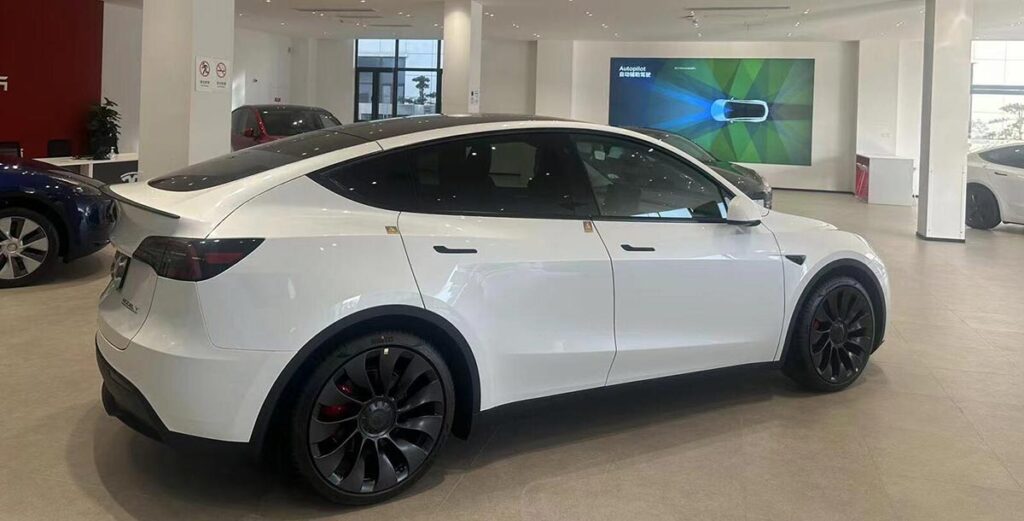Tesla will sell cars in Chinese e-commerce giant JD.com’s online mall to boost sales, according to local media.

(Image credit: CnEVPost)
Tesla (NASDAQ: TSLA) will sell cars in Chinese e-commerce giant JD.com’s online mall to boost sales, a new report said.
The US electric vehicle (EV) giant will start selling cars on JD.com in the near future, when customers will be able to pay deposits for Tesla models on the e-commerce platform, local media outlet LatePost said in a report today.
The effort is currently moving forward, and after a while consumers will be able to order Tesla vehicles directly from JD.com, the report said, citing a person familiar with the matter.
Tesla has a direct sales model and has not partnered with any dealers or shopping platforms to sell its vehicles in China.
Tesla currently has official flagship stores on JD.com, Tmall, and Douyin, however, they only sell some peripheral products and do not sell cars directly. Its online channels for selling vehicles in China include a website as well as a mobile app.
Tesla’s previous cooperation with Chinese e-commerce platforms has had a lot of complications due to the fear of undermining its direct sales model.
On October 20, 2014, Tesla launched its flagship store on Tmall with 18 Model S ready to go, saying that customers could buy the model directly from the store, LatePost’s report today noted.
However, the campaign was halted after only a week because Tesla’s US headquarters was very unhappy with the Tesla China team’s work with the e-commerce platform, according to the report.
A few days after that, Tesla’s flagship store at Tmall closed. On April 16, 2020, the store relaunched, but it only sold accessories and peripherals, and no longer supported online car purchases, the report noted.
On July 21, 2020, a merchant on Pinduoduo launched a group-buying campaign for the Model 3 and offered a subsidy of RMB 20,000 ($2,740) per car.
However, Tesla’s subsequent statement said it had no cooperation with Pinduoduo or the merchant. A customer who purchased a Model 3 through the campaign was denied delivery and had his order canceled by Tesla.
As for why it will now start working with a local e-commerce platform again, the LatePost report said that it amounts to an additional online portal for Tesla, allowing consumers to pay deposits more easily.
Expanding more online sales channels while scaling back the expansion of offline sales outlets is a new attempt by Tesla in its sales model, the report said.
In addition to Tesla, some of China’s homegrown new car makers are also looking to change their sales models.
Nio (NYSE: NIO) approached a local dealership group in the first half of this year with plans to have the dealership handle after-sales service and deliveries for its mass-market-oriented sub-brand Alps, LatePost said, repeating a report from earlier this month.
Xpeng (NYSE: XPEV) closed a number of inefficient directly operated stores in the first half of the year and opened up dealer franchising in July, turning over some of its directly operated stores to dealer operations, according to the report.
Li Auto (NASDAQ: LI) still only has a direct sales model. None of the three new Chinese car makers currently sell cars on third-party e-commerce platforms.
($1 = RMB 7.3040)
BYD takes 33.7% of China’s NEV market share in Aug, Tesla 9%

